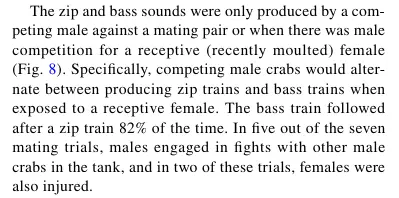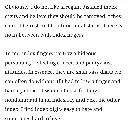

-
Would He Still Love Me as a Worm: Indirect Sampling and Inference Techniques for Romantic Assurance


https://jabde.com/2024/10/31/would-chad-love-me-as-a-worm/
Transcript:
> Ever since I saw the trend on TikTok, I had to know if my boyfriend Chad would still love me if I were a worm. After sampling Chad by directly asking him on camera at least 25 times for statistical significance, ANOVA analysis revealed that he would indeed still love me if I were a worm. Unfortunately, previous studies regarding direct sampling of questions of romantic commitment, though proving similarly statistically significant, have not withheld independent validation tests. This replication crisis has revealed a worrying uncertainty. If this study were validated, it would likely show that Chad might not love me if I were a worm! It is impossible to validate the previous study as I am not able to turn into a worm. In this paper, the worm love question will be validated indirectly by exhibiting worm like behavior, appearance, and sexual practices to measure Chad’s response and therefore his true commitment to me. Analysis found that per behavior there is around a 39% percent chance that Chad will love me the same or more, a 34% percent chance that he will love me much less and a 27% chance that he loves me more because he got really worried at the end
-
The opening paragraph to Goodstein's textbook, "States of Matter"


Transcript (by @TheTechnician27@lemmy.world)
> 1.1 Introduction: Thermodynamics and Statistical Mechanics of the Perfect Gas. Ludwig Boltzmann, who spent much of his life studying statistical mechanics, died in 1906, by his own hand. Paul Ehrenfest, carrying on the work, died similarly in 1933. Now it is our turn to study statistical mechanics.
-
Disorderly male crabs have a bass battle over a female, start a fight with each other, and end up injuring the female


Transcript: "The zip and bass sounds were only produced by a competing male against a mating pair or when there was male competition for a receptive (recently moulted) female (Fig. 8). Specifically, competing male crabs would alternate between producing zip trains and bass trains when exposed to a receptive female. The bass train followed after a zip train 82% of the time. In five out of the seven mating trials, males engaged in fights with other male crabs in the tank, and in two of these trials, females were also injured."
Source: Sound production and associated behaviours in the New Zealand paddle crab Ovalipes catharus



